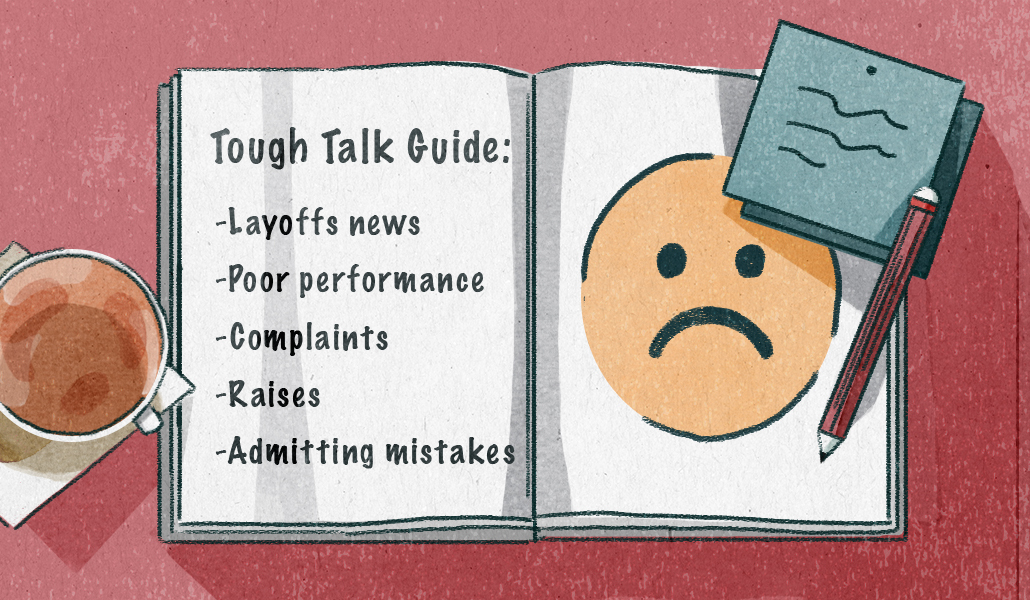‘More energized by their work’: How Shopify’s dual-track promotion plan is working out

The unpredictability of the business environment, coupled with intense pressure on productivity and ensuring hybrid team cohesion, leaves middle managers constantly on edge, trying to make sense of shifting priorities and objectives. This article is part of an editorial series that spotlights their frustrations and where they need more support. More from the series →
Traditionally, climbing the corporate ladder meant that once you excelled in your role, you would be promoted to manage a team and make more money. Management has historically been the only path to leadership.
There was one problem: not everyone makes a good people manager. The expression “the best player doesn’t make the best coach” can ring true in the workplace. People management requires a set of skills that is usually vastly different than what one would lean into for their individual contributor role. Sure, training helps, but some people just aren’t meant to be managers, and frankly, simply don’t want to be. But employers still typically sleepwalk into allowing this structure, which can end up being detrimental to a workplace if people who aren’t meant to be managers keep ending up in that role.
However, an alternative model is growing in popularity.
Enter dual tracks, where people can still see growth, success and increased compensation without the manager title. It’s something that more employers are realizing can positively impact employee retention and overall happiness in the workplace. Global commerce company Shopify is one of those companies and implemented dual tracks last March.
Shopify’s dual tracks include ones for individual contributors, or “crafters” as they call them, and managers. The result has been that Shopify now has fewer managers and more crafters. Both are regarded as leaders and are compensated accordingly. Employees are either a manager or a crafter and can grow their careers on that track.
Success for individual contributors
“Management shouldn’t be a thing you have to do just to get ahead,” said Atlee Clark, vp of talent operations at Shopify. “We flipped this antiquated corporate thinking on its head to make sure that both crafters and managers can have a rich and fulfilling career at Shopify by creating two distinct career tracks for our employees.”
Clark says that this change last year has better aligned Shopify’s talent system with the company’s priorities in a way that has cleared obstacles so that employees can focus on what they do best.
“We created these two distinct tracks because most of our employees want their primary job to be building, which is why they came to Shopify in the first place,” said Clark.
Before this change, the only way for Shopify employees to grow in their career was to move into a people lead role, a traditional model that left some of their most talented employees burdened by managerial tasks, which ultimately distracted them from delivering on the company’s mission.
Middle management has proven to be a tough position, even for people who are the most skilled in people management. In fact, it can lead to attrition. WorkLife recently spoke with individuals who left management positions either because they missed their day to day work, didn’t receive enough training, felt inundated, or a mix of all three. And according to a recent report from Gartner, nearly 3 in 4 middle managers feel overwhelmed at work, and 40% of new managers are looking for new jobs. McKinsey’s research found that managers are the most burnt out of all cohorts with 43% feeling some form of burnout. It’s not surprising when middle managers have increased responsibilities today, some of which include having tough conversations around poor performance, layoff news, raises and so on, that all require a certain emotional intelligence.
“We do know that these folks are under pressure and are feeling it,” Bryan Hancock, partner at McKinsey and co-author of “Power to the Middle: Why Managers Hold the Key to the Future of Work,” told WorkLife earlier this month. “What we are seeing is some individuals are choosing and enjoying being in an organization where there is a choice between an individual contributor career path and a managerial career path.”
That’s the case for employees at Shopify who now have that choice.
“By removing the burden of management from crafters, they can now focus on what they and we value most – shipping products – while at the same time, having a path to advance and grow their careers,” said Clark.
Walmart similarly offers a dual track option and has even recently launched a new individual contributor career path in Walmart Global Tech, the technology and business services organization within Walmart. Walmart Global Tech’s Fellow program is made up of senior leaders with deep domain expertise who apply in a wide set of technical systems, such as AI or supply chain.
“Fellows are driving innovation by taking an enterprise-level lens and serving as leaders to help us drive even greater impact for our customers, members and associates,” said Maren Waggoner, svp, global tech and corporate functions people. “They are force multipliers having impact through the mentoring and influencing others.”
Waggoner said that Walmart has seen its associate engagement in global tech increase over the years and turnover trend down. In addition, it has bi-annual internal promotion cycles for associates who are ready for the next level, both on the technical and managerial track.
“We believe there’s a path for everyone at Walmart, no matter where you start or what you aspire to, and we’re focused on providing resources to help associates reach their career goals, whether that’s as an individual contributor or a leader of people,” said Waggoner.
Will anyone want to be a people manager with dual tracks?
Even though employees now have this choice, it’s not to say that managers are left in the dust. “Managers are still a critical piece of the puzzle under this new approach and a craft in and of itself,” said Clark. “Great managers create space for crafters to focus on important things and set up their direct reports for success.”
While crafters are focused on building products, which is integral to Shopify, managers have their own distinct track and craft, which Clark says includes leading multiple people and helping unblock them. “The managers at Shopify are highly skilled in people management and are there to help 10x the growth and development of our crafters,” said Clark.
Global HR platform Remote, which has had dual tracks since the company’s fruition, has never run out of people who want to still be people managers. It’s also helpful because a company needs fewer managers than it does individual contributors.
“If you say to someone ‘hey, I think you’re great, would you consider managing?’ most people will be excited with the prospect,” said Job van der Voort, co-founder and CEO of Remote. “If you haven’t done it, it might be something you want to try to see if you like it or not.”
At Remote, both tracks for promotion have equal growth in compensation, which empowers people who do not want to be people managers to stay in their individual roles. Once an employee hits a certain level, compensation becomes identical but there are different paths to choose from. That conversation usually starts earlier, but at that time they can start officially going down that path. But, employees aren’t tied to that path either. They’ve had employees who tried out management and didn’t like it, so hopped to the other track. “We’re happy to do that,” said van der Voort. That’s led to higher retention because employees don’t need to job hop and there’s no ceiling that someone hits where they can no longer be promoted.
“The benefit is really great to an organization,” said van der Voort. “It works really well, especially if you don’t want to create too much hierarchy in a company and still want to give people options. It helps you prevent competitiveness. It’s not like there’s one manager position you’re vying for. Now there’s more options to continue growing, even if there is not an obvious need for a manager.”
Happier employees when given a choice
Clark says that there’s been noticeable positive feedback since these tracks were rolled out this time last year. “Our crafters are more energized by their work and feel they have the opportunities to learn and develop new skills,” said Clark. “It’s also been a draw for people who want to spend their days building products that will impact the future of commerce.”
Van der Voort agrees that it’s been a success. “It was very obvious to us that this was necessary,” said van der Voort, who also had this model at AI-powered software firm GitLab, where he was an early employee. “It doesn’t make any sense when you like doing your job, and you’re really good at it, and then they take away your job from you to become a manager. If you don’t want to do that, you should still have the opportunity to make money.”
While it’s still a newer model, more and more companies are trying it out for themselves, including smaller ones where retention is especially important. Digital media company Launch Potato has a dual-track system for employees to grow as either individual contributors or managers, with clear expectations set for both at every level. For example, the base compensation for an individual contributor at a level nine is the same for a manager at a level nine. This model has made it easier to have more open promotion discussions and to understand what’s expected of employees.
“Historically people have just thought that they need to be a manager to get ahead,” said Kris Osborne, svp of talent at Launch Potato. “In the new way of doing things, that’s not necessarily the case. Taking that pressure off people, I’ve seen a positive impact because you’re not forcing someone into something they don’t want to do. At the same time, you’re also giving them flexibility.”


